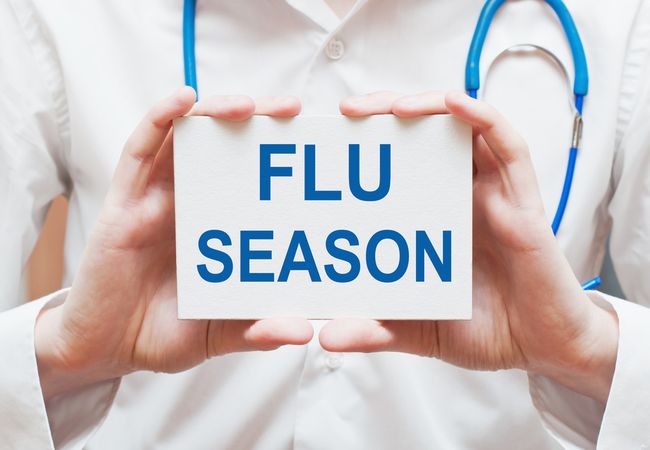
We’re in the thick of flu season now and it’s definitely making people sick. Here are some ways to get through it without losing too much work, school and precious family time to feeling miserable.
Yes, it would have been best to get it back around Labor Day but it can still help you to stay healthy throughout the rest of the season.
Don’t get your flu shot on a day that you are already feeling sick, however. The flu shot can’t give you the flu–there’s no live virus in it–but it can distract your immune system from any other germs it’s trying to fight and let that little cold or tummy bug turn serious.
Bear in mind that a flu shot takes about 2 weeks to reach maximum effectiveness; minimize your exposure to crowds and sealed spaces if you are worried about infections during that period.
The flu has many symptoms of a regular cold or other viral respiratory infection. The biggest difference is that it is accompanied by fevers which may be quite high, and will probably bring headaches, sore throat, cough, muscle/joint aches and fatigue along with it.
Children may experience nausea and vomiting, as a side effect of rapid temperature changes. The flu is not a sickness that attacks the digestive system. It can, however, keep a healthy adult down for a couple of weeks; even if your flu shot doesn’t prevent infection, it can shorten your illness and make it less severe.
The flu is caused by a virus. If you are sick enough that you need to see a doctor or go to urgent care, make sure you are tested for the flu before you start taking antibiotics–they won’t work on viruses.
If your flu test is positive, you’ll treat it by managing the symptoms. Alternate NSAIDs (aspirin, ibuprofen) and acetaminophen (Tylenol) to moderate the fever, drink lots and lots of fluid, and get as much rest as you can.
Stay away from work and school until you are no longer feverish, so that you don’t contaminate anyone else. Hot tea with honey may help unclog congested sinuses and soothe sore throats, and expectorants like guaifenesin (Mucinex) may help loosen and get rid of phlegm. Staying away from milk and other dairy products may reduce the amount of mucus your body produces, making you more comfortable.
Over-the-counter decongestants should only be used if you’re truly miserable, as they can cause your body to hold on to secretions that really need to come out.
The flu rarely causes complications in otherwise healthy adults. It can cause pneumonia and sepsis in children, older adults or people with compromised immune systems and other chronic illness.
If you develop shortness of breath, dizziness, very high fevers or an unusually fast heart rate while lying still, it’s worth getting to a doctor or an urgent care clinic for evaluation. The best way to avoid complications is to get enough rest so your body can heal.
Accept offers of help from family and friends, re-schedule social events and other commitments, skip working out so that your energy can be devoted to recovering.
The flu is no fun to have, but in almost all cases it can be managed at home without too much trouble. The most important thing to remember is that a full recovery will take time and excellent self-care.
Let us know if you have any questions about what do to if the flu strikes. Educating yourself about how to prevent the flu and how to take care of yourself and your family will help keep you safe and healthy not just this flu season, but for all the ones to come.
FIND YOUR VYBE